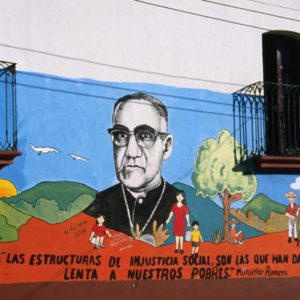This video is an excerpt from the recent Dreaming Racial Justice webinar, led by Racial Justice Institute program manager Andre Henry. A lightly edited transcript follows.
Let’s talk about what vision does in a movement and why it’s important.
Eventually, at some point, the people who say that they want racial justice—or any other kind of change in the world to—get clear about what that actually looks like. Vision helps us to create more unity, it helps mobilize people, and it serves as a true north for action.
Unites
[Earlier in the webinar], I mentioned that chant, “What do we want? Justice! When do we want it? Now!” Whatever the the response to “What do we want?” is, that response tends to be abstract. The problem with abstractions is that they’re so open to interpretation.
When someone says, “What do we want?” and someone says, “Racial justice,” well, for some people, racial justice could mean people of all kinds of different ethnic backgrounds living together in harmony in the same society and sharing resources. But racial justice for another person or another group of people could mean all of the people who have suffered because of white supremacy moved to another country together. For another group of people, it could mean inverting the hierarchy: “We get to be the bullies now.”
A clear and compelling vision of tomorrow helps people to conceptualize a common vision, mobilize around it and work towards it.
Unity is so important for pursuing social progress that some practitioners refer to it as part of the holy trinity of nonviolent struggle. When we have the same idea about what kind of world we want to build, our movements are stronger because we consolidate the limited resources that we have toward that end.
Mobilizes
When we craft a compelling and clear vision of tomorrow, it speaks to people’s deepest aspirations. Think about the, “I Have a Dream” speech, which we’ll look at a excerpt of in a little bit. When Dr. King starts getting into that refrain, that riff of “I have a dream,” he starts speaking in sensual language. What I mean by “sensual” is that he starts speaking in language that you can literally see, you can literally imagine.
“I have a dream that one day, the sons and daughters of former slaves will sit down with the sons and daughters of former slave owners as sisters and brothers. I have a dream that little white boys and girls will join hands with little black boys and girls.”
You can literally see it. It becomes tangible. These images speak to people’s aspirations and their desires for the world that they want to live in. This is much better than an abstraction like justice.
Serves as True North for Action
John Lewis Gaddis explains that strategy is about matching the ends that you want with the means that you have. It’s matching vision and action.
If the dream is to have the sons and daughters of former slaves living in peace with the sons and daughters of former slave owners, then, just as an example, a program for armed struggle is probably not the best method to get there. Because when one group feels that they have to kill another group in order to gain power or become free, you create a situation where living in peace with those people afterwards is impossible. The families of the people who were killed are at least going to be resentful, if not want revenge.
That’s actually a fact that’s recorded in the data. Sociological research shows that nonviolent struggles tend to leave more democratic states in their wake, because they don’t create the context for revenge killings.
I don’t want to get too down into the nitty gritty of it. I just want to give us a high-level idea of what vision does and why it’s important, why it is vital for movements to develop the big picture of their struggles for progress.
Andre Henry is the Program Manager of the Racial Justice Institute at Christians for Social Action and author of All the White Friends I Couldn’t Keep (Penguin Random House, 2022). He holds a Master of Arts in Theology with an emphasis in Biblical Languages from Fuller Theological Seminary and a Bachelor of Science in Practical Theology from Southeastern University.
For more information on the Racial Justice Institute and to learn about the next opportunity to participate in a Dreaming Racial Justice webinar, visit the RJI page.


